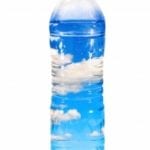Another fact that most people know is how the body is made up of mostly water – 66 percent to be exact – so it’s no surprise that staying well hydrated is essential. However, the amount of water each person needs during exercise will depend greatly on the length and intensity of the workout. For example, an hour-long high intensity run will have a different effect on the body than a casual stroll with a friend, and as temperatures rise proper hydration becomes crucial.
Does hydration actually improve performance?
Many exercise physiologists agree that hydration improves endurance. The reason for this has to do with the way the body cools itself. As we exercise and our body temperature rises, we start to sweat to cool the body down. The hotter and more humid it is outside, the more we sweat. Without proper hydration our core body temperature remains elevated and we cannot cool down. This can lead to heat stroke or exhaustion, so be sure to drink plenty of fluids while exercising. In addition, studies have shown that people who drink fluids while exercising tend to extend their workout by 33 percent.
How much water is enough?
As a general rule of thumb, you should drink 4 to 6 ounces of water for every fifteen minutes of exercise. When you plan on exercising for more than 90 minutes it might be best to consume a sports drink during or after the workout to restore any lost nutrients and electrolytes. Sports drinks are scientifically formulated to work best when you are hot and sweaty and they can help you recover faster from strenuous workouts.
How to carry a water bottle while exercising outdoors
Some people forego water during a run because it can be so difficult to carry water, but this is never a good idea. It’s hard to tell when and if you will need water when running and it’s not safe to be caught without it. Avid runners are known to wear waist packs that can hold a water bottle, cell phone and car keys. On hot days it can help to freeze a plastic water bottle so it stays cold longer. The Camelbak Hydration system is another option, allowing runners to carry water on their backs and get a constant stream of water. These systems can also be used while skiing or bicycling.
What do the experts have to say?
According to the American Council on Exercise (ACE), drinking an additional 17 to 20 ounces of water 2 hours before a workout can be beneficial, but keep in mind that the body can lose more than a quart of water in just one hour of exercise. It’s important continue drinking during a workout as well, but not to the point of excess.
Contrary to popular belief, more isn’t better. Too much water can make you sick, a condition called hyponatremia, which essentially means you have waterlogged your system. Another problem that can occur is the sudden loss of electrolytes, such as sodium. So again, if you’re working out vigorously for longer than 45 to 60 minutes, you’ll want to have a sports drink or consume a food that contains some sodium with your water.
Is tap water safe?
The questionable contents of municipal tap water have been well established, leading millions of Americans to switch their drinking and cooking water to trustworthy filtered water. Purchasing bulk quantities of bottled water can be inconvenient and the option of using filtered water delivery services has quickly gained popularity, but with our increasingly hectic schedules many families are looking for a more permanent in home solution. Reverse osmosis systems for your Colorado home are cutting edge water filtration systems that provide clean, great tasting water for all your cooking and drinking needs!
Highest standards for bottled water
Another option is home-delivered bottled water from a company that practices the rules and regulations of the International Bottled Water Association. Make sure you get water from a company that meets all federal and state health standards.




